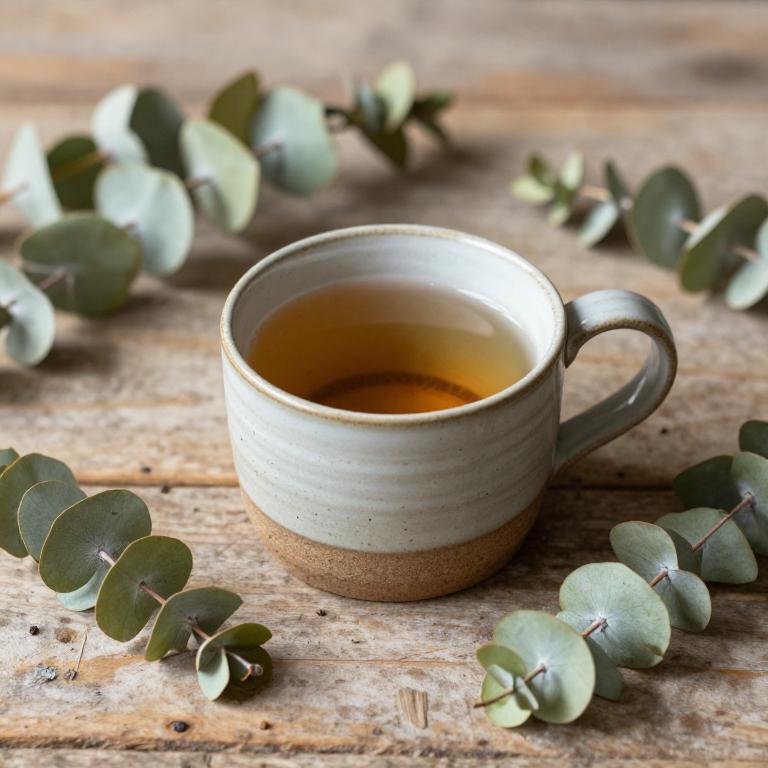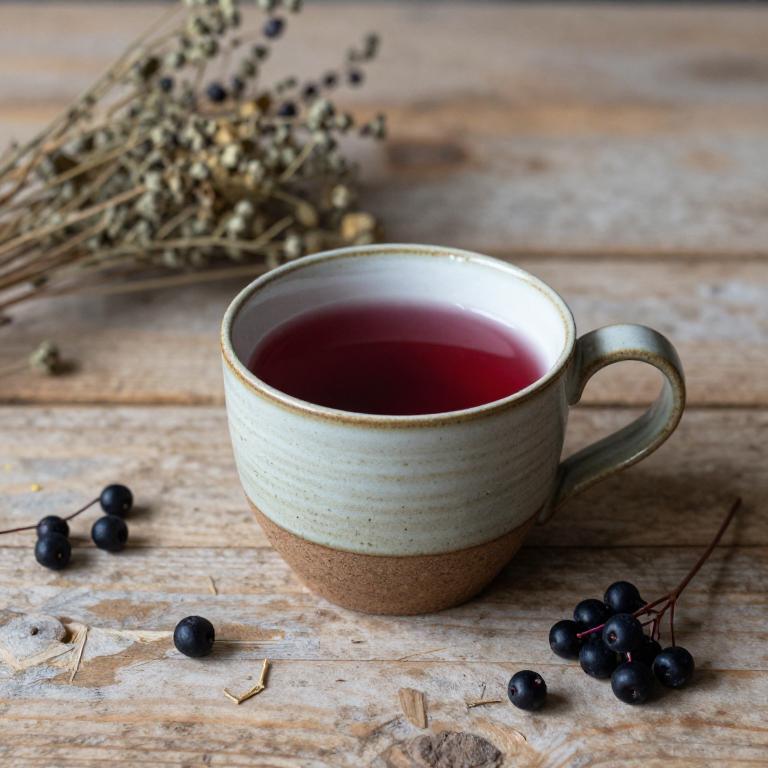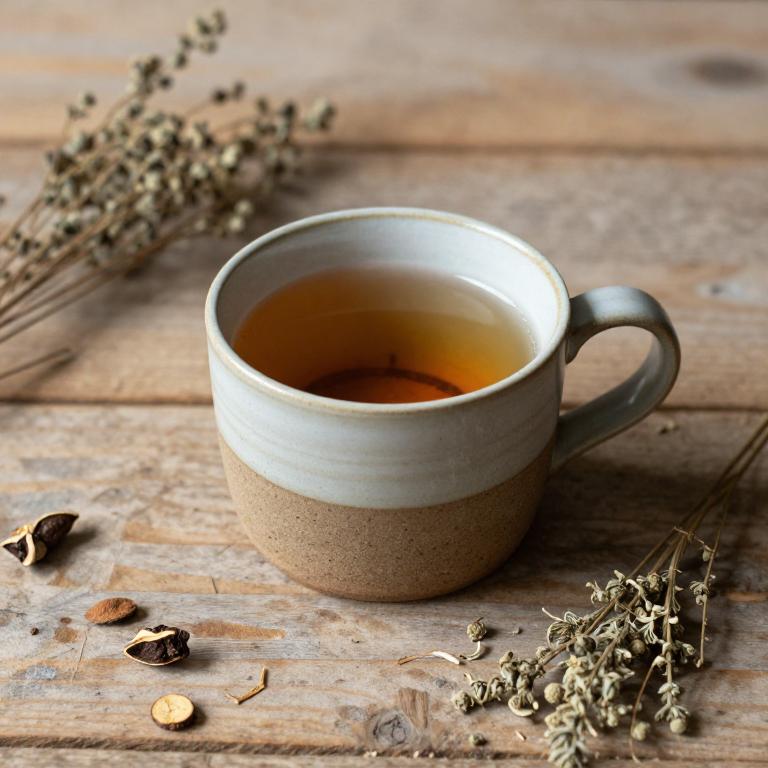10 Best Herbal Teas For Coughing Fits

Herbal teas can be an effective natural remedy for relieving coughing fits, offering soothing and anti-inflammatory properties that help ease throat irritation and reduce mucus production.
Common herbs used in these teas include ginger, licorice root, eucalyptus, and thyme, each known for their ability to calm the respiratory system and promote easier breathing. Many herbal teas are caffeine-free, making them a safe option for people of all ages, including children and pregnant women, when used appropriately. Drinking warm herbal tea can also help hydrate the body and thin out mucus, making it easier to expel.
However, it is important to consult with a healthcare provider before using herbal remedies, especially if symptoms persist or if you have underlying health conditions.
Table of Contents
- 1. Thyme (Thymus vulgaris)
- 2. Eucalyptus (Eucalyptus globulus)
- 3. Chamomile (Matricaria chamomilla)
- 4. Ginger (Zingiber officinale)
- 5. Fennel (Foeniculum vulgare)
- 6. Black elderberry (Sambucus nigra)
- 7. Rosemary (Rosmarinus officinalis)
- 8. Ceylon cinnamon (Cinnamomum verum)
- 9. Stinging nettle (Urtica dioica)
- 10. Peppermint (Mentha piperita)
1. Thyme (Thymus vulgaris)

Thymus vulgaris, commonly known as thyme, is a popular herb used in herbal teas to alleviate symptoms of coughing fits due to its potent antimicrobial and anti-inflammatory properties.
The essential oils in thyme, particularly thymol, help to loosen mucus and reduce throat irritation, making it effective for both dry and productive coughs. When brewed into a tea, thyme can soothe the respiratory tract and provide relief from persistent coughing, especially when accompanied by colds or bronchitis. It is often combined with other herbs like licorice or eucalyptus to enhance its soothing effects.
However, individuals with allergies to the Lamiaceae family or those taking certain medications should consult a healthcare provider before using thyme-based herbal teas.
2. Eucalyptus (Eucalyptus globulus)

Eucalyptus globulus, commonly known as eucalyptus oil, is often used in herbal teas to alleviate symptoms of coughing fits due to its expectorant and anti-inflammatory properties.
When brewed into a tea, the essential oils in eucalyptus globulus help to loosen mucus and reduce irritation in the respiratory tract, making it easier to expel phlegm. This natural remedy is particularly effective for dry or productive coughs associated with colds, bronchitis, or other respiratory infections. However, it is important to use eucalyptus globulus in moderation and consult a healthcare professional, especially for children or individuals with asthma.
While it can provide soothing relief, it should not replace prescribed medical treatments for severe or persistent coughing.
3. Chamomile (Matricaria chamomilla)

Matricaria chamomilla, commonly known as German chamomile, is a popular herbal tea used to alleviate symptoms of coughing fits due to its soothing and anti-inflammatory properties.
The tea contains compounds like apigenin and bisabolol, which help reduce throat irritation and ease breathing. It is often recommended for its calming effect on the respiratory system, making it a natural remedy for persistent or nighttime coughing. Drinking chamomile tea regularly can also help reduce the frequency and intensity of coughing episodes.
However, individuals with allergies to plants in the daisy family should consult a healthcare provider before using chamomile as a treatment.
4. Ginger (Zingiber officinale)

Zingiber officinale, commonly known as ginger, has been widely used in herbal teas to alleviate symptoms of coughing fits due to its anti-inflammatory and soothing properties.
The active compounds in ginger, such as gingerol and shogaol, help reduce irritation in the respiratory tract and ease throat discomfort. Brewing fresh or dried ginger in hot water creates a warm, aromatic tea that can be consumed several times a day to provide relief from persistent coughing. Many people find that adding honey or lemon to the ginger tea enhances its effectiveness and improves the overall flavor.
While ginger tea is generally safe for most individuals, it is advisable to consult a healthcare professional if the cough persists or is accompanied by other symptoms.
5. Fennel (Foeniculum vulgare)

Foeniculum vulgare, commonly known as fennel, is a popular herb used in herbal teas to alleviate symptoms of coughing fits.
The essential oils in fennel, particularly anethole, have mild expectorant and antispasmodic properties that can help loosen mucus and reduce throat irritation. When brewed into a warm tea, fennel can soothe the respiratory tract and ease persistent coughing. It is often recommended for its calming effect on the digestive system, which may indirectly support respiratory health.
However, it is important to consult a healthcare provider before using fennel tea, especially for individuals with allergies or chronic respiratory conditions.
6. Black elderberry (Sambucus nigra)

Sambucus nigra, commonly known as European elderberry, is often used in herbal teas to help alleviate symptoms of coughing fits.
The berries and flowers of the plant contain compounds such as flavonoids and antioxidants that may have anti-inflammatory and immune-supporting properties. When brewed into a tea, sambucus nigra can soothe the throat and reduce irritation, making it a popular remedy for dry or productive coughs. However, it is important to use it in moderation and consult a healthcare provider, especially for those with allergies or chronic respiratory conditions.
While some studies suggest potential benefits, more research is needed to fully understand its efficacy for treating coughing fits.
7. Rosemary (Rosmarinus officinalis)

Rosmarinus officinalis, commonly known as rosemary, is a popular herb used in herbal teas to alleviate symptoms of coughing fits.
The essential oils in rosemary, such as cineole and camphor, possess expectorant and anti-inflammatory properties that can help loosen mucus and reduce throat irritation. When brewed into a tea, rosemary can soothe the respiratory system and provide a calming effect, making it a natural remedy for persistent coughing. It is often combined with other herbs like thyme or eucalyptus to enhance its effectiveness.
However, it is important to consult a healthcare professional before using rosemary tea, especially for individuals with existing medical conditions or those taking medications.
8. Ceylon cinnamon (Cinnamomum verum)

Cinnamomum verum, commonly known as true cinnamon, is often used in herbal teas to help alleviate symptoms of coughing fits.
The essential oils found in cinnamon, such as cinnamaldehyde and eugenol, possess anti-inflammatory and antimicrobial properties that can soothe irritated airways and reduce mucus production. When brewed into a warm tea, cinnamon can provide a comforting and aromatic remedy that may ease throat irritation and loosen congestion. Some studies suggest that cinnamon may help reduce the frequency and intensity of coughing by calming the respiratory system.
However, it is important to use cinnamon in moderation and consult a healthcare professional, especially for individuals with allergies or chronic respiratory conditions.
9. Stinging nettle (Urtica dioica)

Urtica dioica, commonly known as stinging nettle, has been traditionally used in herbal teas to help alleviate symptoms of coughing fits.
The leaves of this plant contain various bioactive compounds, including flavonoids and mucilage, which may soothe irritated airways and reduce inflammation. When brewed into a tea, stinging nettle can provide a mild expectorant effect, helping to loosen mucus and ease breathing. It is often combined with other herbs like thyme or licorice root to enhance its therapeutic benefits.
However, individuals with allergies to plants in the Urticaceae family should exercise caution and consult a healthcare professional before using stinging nettle tea for persistent coughing.
10. Peppermint (Mentha piperita)

Mentha piperita, commonly known as peppermint, is a popular herb used in herbal teas to alleviate symptoms of coughing fits.
The soothing properties of peppermint come from its high concentration of menthol, which can help relax the muscles in the airways and reduce irritation. Drinking peppermint tea may also help ease congestion and provide a cooling sensation that soothes the throat. It is often recommended for its mild antispasmodic and anti-inflammatory effects, which can ease the frequency and intensity of coughing.
However, it is important to consult with a healthcare provider before using peppermint tea, especially for individuals with certain medical conditions or those taking medications.